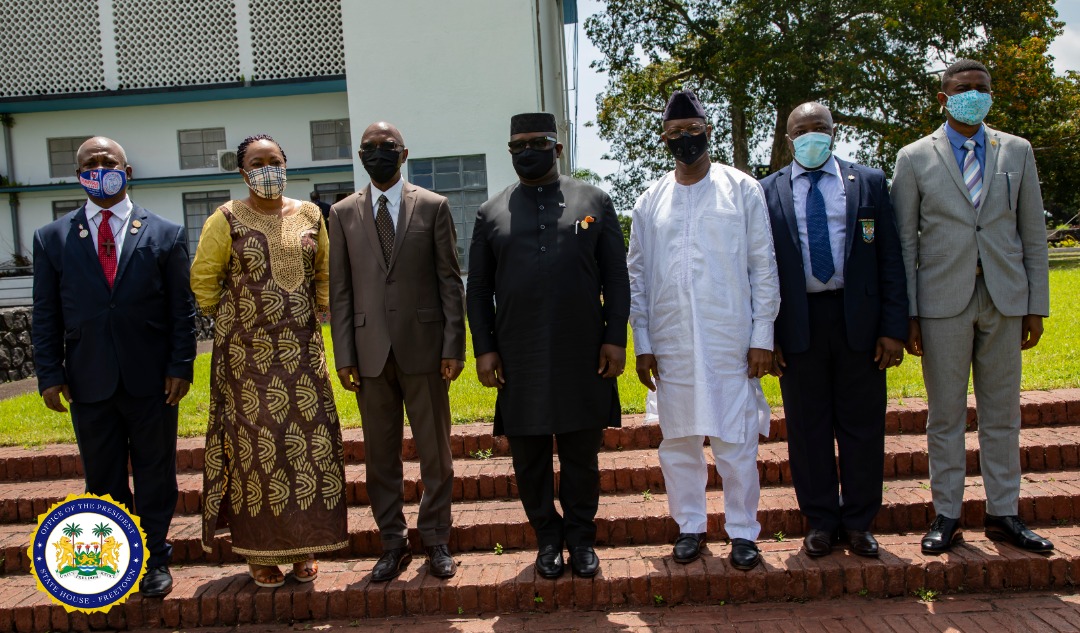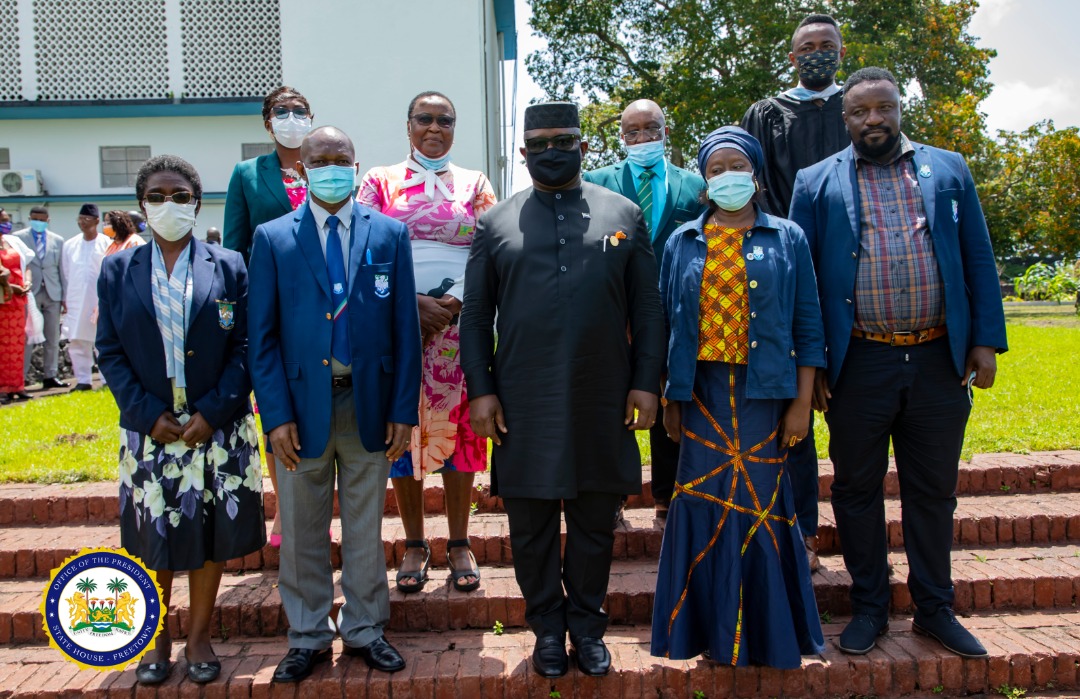His Excellency President Dr Julius Maada Bio, as Chancellor of the University of Sierra Leone, has presided over the signing of a Memorandum of Understanding, MoU, between the University of Sierra Leone, USL, and the University of Liberia, UL, on staff capacity development and exchanges among others.
Vice Chancellor and Principal of USL, Brigadier General Professor Foday Sahr, said he was honoured to welcome the President of the University of Liberia and his delegation on the signing of the MoU, adding that the occasion being presided over by the President was not only a manifestation of the value he attached to education, but it was also a demonstration of the relevance, recognition and respect his government attached to the long-standing bilateral relationship between the two countries.
“The areas of partnership include quality management; programme and development and review of curricula; research and publication; harmonisation of assessment and examination of procedures; staff capacity building and development and sourcing alternative funding to assist government finance and university,” he disclosed.
Liberia’s Minister of Education, Professor Ansu Dao Sonii, extended fraternal greetings from President George Weah, on whose permission he said he was witnessing a historic milestone of binding ties of academic and professional relationships between the two universities.
“Education is the only indispensable unit of national functionaries upon which growth, development and progress of a nation is depended. All nations, big or small, rich, or poor, advanced, and advancing need each other in so many ways. Such interdependence is even more profound and relevant in academia.
“Your Excellency, President of Sierra Leone, Liberia is now a witness to the gains you are making in prioritising education in this beautiful country,” he concluded.

In his statement, President Julius Maada Bio said he was gratified that, in the MoU, they had incorporated some of the key areas discussed on the margins of the centennial commencement ceremony in Monrovia in December 2019, among them research collaboration and joint publications, knowledge and technology exchanges, staff capacity development and exchanges, programme and curriculum development, and more.
“The rationale for the MOU has been well laid out in statements by the previous speakers. There is a need for collaboration in higher education in order to develop homegrown development solutions for problems we experience in our countries – whether it is in the fields of the innovative uses of technology for development, agricultural production, medicine and more.
“We must re-purpose technical and higher education for increasing productivity, creating jobs, and for other national development outcomes – not just for giving out paper certificates,” he said.
He then encouraged them to move from the MOU to more concrete elements of the shared vision they had to address such questions as what were the deliverables? What were the commitments? How would they organise themselves to achieve those deliverables? How would they plan to achieve and sustain those deliverables? How would they engender trust and communicate effectively and honestly about their partnership? What were the milestones and how would they assess and measure their successes or critically reflect on the challenges?
“So, for me, this MOU is a shared vision that is most commendable. Thank you to both leaderships for your drive and engagement. Thank you for moving the needle on this,” he urged.











